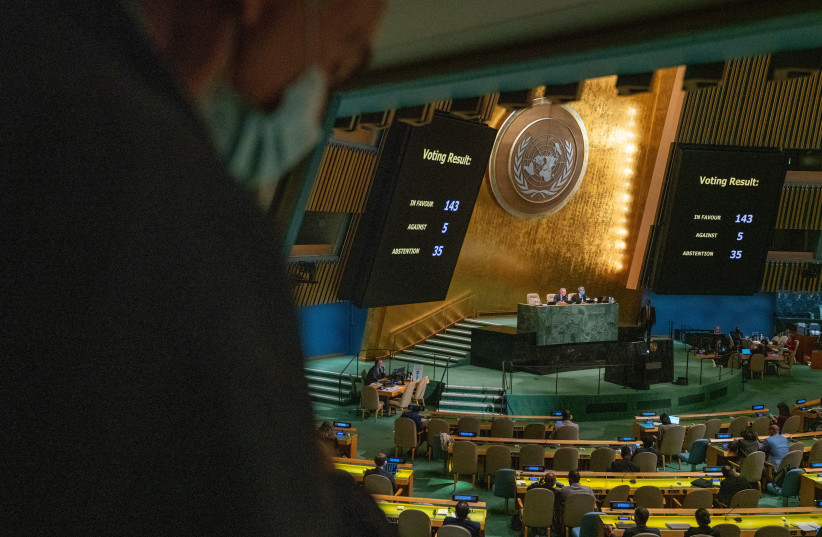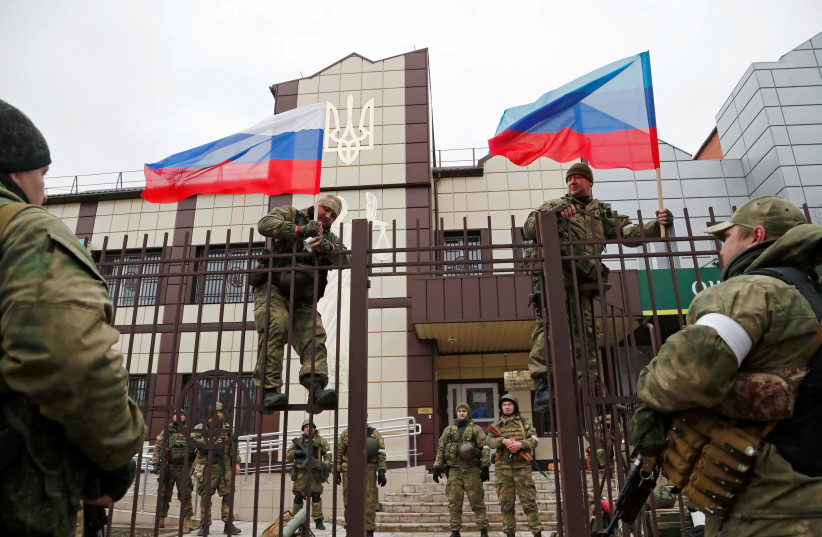There is no comparison between Russia's actions in Ukraine and Israel's treatment of the Palestinians, State Department spokesman Ned Price told reporters in Washington as he rejected an attempt by UN human right expert Navi Pillay to make such a linkage.
"I think it is important to take a step back and to recognize the profound differences between those two situations," Price stated.
He spoke after the UN's Commission of Inquiry (COI) on Israel concluded that the IDF's "occupation" of Palestinian territory over the pre-1967 lines was illegal because it had become akin to de facto annexation, in a report it released Thursday.
Israel annexed east Jerusalem in the immediate aftermath of the Six-Day War in 1967, a move the International community has never recognized and has widely condemned.
It has maintained military rule over the West Bank since that war but withdrew from Gaza in 2005. The international community has held that Israel still occupies Gaza because it continues to control its borders.

Rising comparisons between Russian annexation and Israeli territories
In a statement to the media on Thursday COI Chair Navi Pillay recalled that earlier this month the UN General Assembly had condemned as illegal Russia's attempt to annex four regions in Ukraine. Some 143 nations out of 193 member states had approved that resolution including the US and Israel.
“Recent statements by the Secretary-General and numerous member States have clearly indicated that any attempt at unilateral annexation of a State’s territory by another State is a violation of international law and is null and void," Pillay said.
She added that "unless universally applied, including to the situation in the Occupied Palestinian Territory, this core principle of the United Nations Charter will become meaningless."
Price said that the Biden administration "categorically reject the blanket comparison between the actions" of Russia with those of Israel.
Russia "has launched and waged a brutal war of aggression against another sovereign state, a sovereign state that posed and poses no threat whatsoever to the Kremlin, a military campaign that has – whose toll can be measured in thousands upon thousands of lives lost," he stated.
"I think it is important to take a step back and to recognize the profound differences between those two situations," Price added.
A reporter asked Price if one of the differences was "that Ukraine is a sovereign state, in your view, and that Palestine is not?"
Price responded, explaining 'this is a key difference."
He clarified that "No country is or should be immune from criticism. That, of course, includes Israel. Some of the criticism that we’ve heard – and we’ve, of course, offered our own over the course of recent months – is justified. Much of it is not."
The US, like Israel, had opposed the creation of the COI last year, when the matter came for a vote at the UN Human Rights Council. At issue in particular, was the fact that the COI is a permanent commission of inquiry, while most COIs that investigate human rights situations are temporary in nature.

Price recalled that objection, explaining that "we have made our concerns about this Commission of Inquiry clear from the start. Israel is consistently unfairly targeted in the UN system, including in the course of this Commission of Inquiry. Israel is the only country that’s subject to a standing country-specific agenda."
It is important "that Israel is not unfairly singled out – and I use that term unfairly – put emphasis on that. No country – the record of no country should be immune from scrutiny, but no country should also be targeted unfairly, and that’s the principle that we seek to uphold."
In its report, the COI called for the UNGA to seek an advisory opinion from the International Court of Justice on the issue of whether Israel's "occupation" of Palestinian territories could be considered illegal.
The UNGA's Third Committee will debate the report on October 27.
